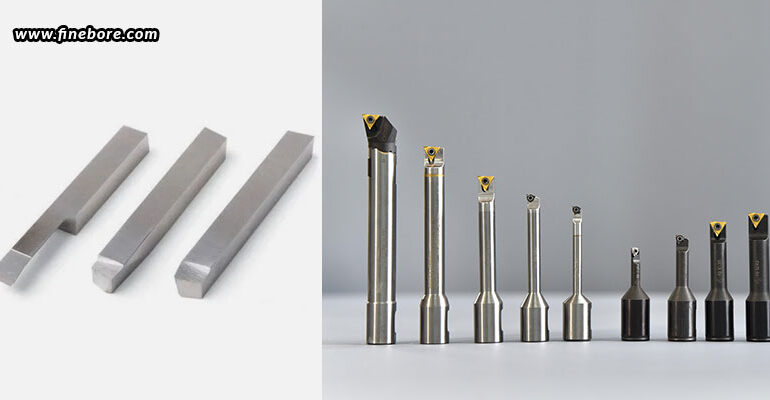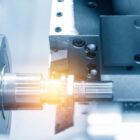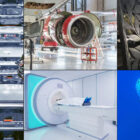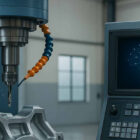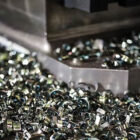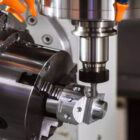Boring operations play a crucial part in the field of machining, where an exceptional level of precision is crucial. Precision boring heads are a notable development that offer several benefits over traditional boring techniques. Let’s explore the differences between precision boring heads and traditional boring techniques, illuminating the revolutionary advantages that the former brings to the machining environment. We’ll also reveal how precision boring heads have changed the norms of efficiency in machining, especially in areas where precision and meticulousness are non-negotiable. From increased accuracy to greater flexibility, precision boring heads are becoming more and more important as manufacturing technologies advance, influencing the development of modern machining processes.
Traditional boring methods
Using simple instruments like single-point cutting tools and rough boring bars, traditional boring processes have been associated with simplicity throughout the history of machining. Although these techniques have shown some degree of efficacy, they have underlying restrictions, especially when trying to achieve high accuracy. For example, problems with tool deflection and insufficient stiffness when using single-point cutting tools might result in accuracy losses. In a similar vein, rough boring bars could find it difficult to provide the precise adjustments required to meet the high tolerances required by contemporary production requirements. These restrictions are particularly noticeable in sectors like medical and aerospace where precision is critical.
Limitations of traditional boring
The drawbacks of traditional boring techniques have been a major source of worry for precision machinists, especially in light of the advances provided by modern technology. Traditional boring methods have three main drawbacks.
- Tool flexibility: During machining processes, traditional boring tools, such as rough boring bars and single-point cutting tools, may exhibit flexibility issues. Tool deflection is a frequent problem, particularly when cutting complicated shapes or working with strong materials. These tools’ lack of stiffness causes them to deviate from the planned machining route, which results in inaccurate hole diameters. This issue thus creates a barrier to obtaining the required accuracy as industries seek components with tighter tolerances.
- Restricted adjustability: Traditional boring tools frequently have characteristics that limit their ability to be adjusted. It is difficult to achieve the high precision requirements of modern production since there is little room for fine-tuning the cutting diameter or other factors. The machining process might become more difficult and time-consuming due to the lack of versatility in these equipment, which can also lead to decreased quality and the need for several setups to attain the needed accuracy.
- Time-consuming: Because of their intrinsic limitations, traditional boring procedures are sometimes time-consuming. Longer machining durations may result from the need for several setups and modifications to achieve the required precision. The lengthy nature of conventional approaches can be a major disadvantage in sectors where productivity and efficiency are vital. The requirement for painstaking manual adjustments and calibration might lead to increased downtime and, consequently, reduced overall productivity.
Precision boring heads
Precision boring heads represent a significant advancement in machining technology, effectively addressing the drawbacks inherent in conventional techniques. These advanced tools introduce a set of features that elevate the precision, repeatability, and operational efficiency in boring operations. Characterized by a modular design, precision boring heads provide unmatched flexibility to a wide range of machining requirements, simplifying the setup and minimizing the frequency of tool changes. One notable benefit is the use of adjustable inserts, which provide careful adjustment to get accurate diameters and flawless surface finishes – a quality that is difficult to achieve using conventional tools. Furthermore, the addition of micrometre adjustments gives machinists the flexibility to make incredibly precise adjustments to the cutting diameter, which is a critical feature in situations where maintaining tight tolerances is essential. To put it briefly, precision boring heads are a technical advancement that have reshaped the machining industry by offering an unmatched level of efficiency, versatility, and precision in keeping with modern industrial requirements.
Advantages of precision boring heads
Having explored the fundamental disparities between precision boring heads and traditional methods, let’s now delve into the specific advantages that elevate precision boring heads to the forefront of contemporary machining.
- Improved accuracy: Precision boring heads stand out for their exceptional repeatability and precision delivery. The capacity to make minuscule modifications guarantees that the intended tolerances are always fulfilled, harmonizing with the exacting specifications of contemporary production. This accuracy is particularly important in businesses where parts have to meet strict requirements.
- Versatility: Precision boring heads are naturally adaptable instruments that may be used in a wide variety of settings. Their modular design makes it simple to adapt to various workpieces and machining needs, therefore reducing the frequency of tool changes. Enhancing operational flexibility and response to changing production demands is largely dependent on this adaptability.
- Surface finish improvement: One major factor in better surface finishes is the use of micrometre adjustments and adjustable inserts in precision boring heads. Precision boring heads become essential equipment in sectors where polished and smooth surfaces are necessary for both functionality and aesthetics. By fine-tuning these qualities, machinists may fulfill the highest standards of workmanship and obtain the required surface quality.
- Enhanced productivity: The modular design and adjustable features greatly enhance productivity. Downtime is decreased by the simplified setup procedure made possible by the modular design. Additionally, the versatility of precision boring heads makes it possible to do several tasks with a single tool, which boosts overall machining efficiency and speeds up production procedures.
- Cost-effectiveness: Although precision boring heads may need a larger initial outlay, they are frequently more cost-effective in the long run. High accuracy may be attained in a single setup, which lowers the chance of mistakes and scrap rates, eventually resulting in considerable cost savings over time. Precision boring heads are economically advantageous because of their increased efficiency and improved quality, which aligns with the cost-conscious concerns of modern production.
In conclusion, precision boring heads prove to be both economically and technologically advantageous tools, providing a comprehensive response to the changing needs of contemporary machining. With increased precision and productivity, more adaptability, improved surface finish, and long-term cost-effectiveness, these cutting-edge tools raise the bar for precision machining in modern industries. These tools are well-positioned to address the changing needs of precision production and shape the future of machining processes as technology develops. However, it is important to recognize that the decision between conventional techniques and precision boring heads depends on particular machining needs. For best outcomes, each strategy must be carefully evaluated. Notably, FineTech Toolings is one of the best precision boring head manufacturers in Bangalore when it comes to precision machining, demonstrating proficiency and making a major contribution to the development of precision machining technologies.

